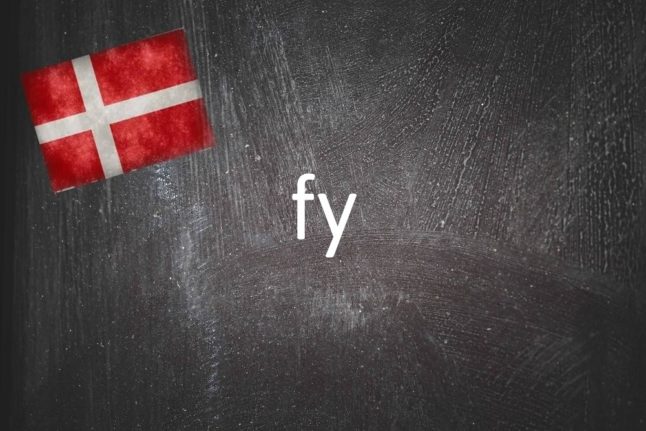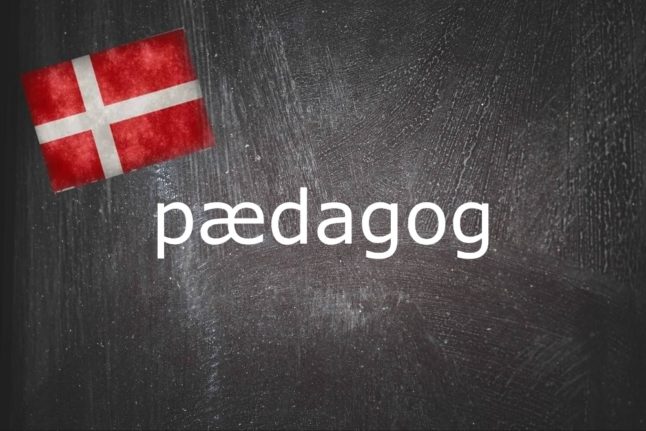What is fy?
If a Dane starts a sentence with fy, brace yourself, because it’s a word that shows strong emotions.
You might hear it uttered alone – Fy! – but it can also come before another word, often a swear word or another noun understood as a profanity.
But it also can be used in a lighter context, like telling children something they are saying or doing is a bit of a no-no. Fy, der er lidt beskidt in sandkassen. Nu går vi in dog vasker hænder (”Yuck, the sandpit is a bit dirty. Let’s go inside and wash our hands”).
This can also apply when speaking to an adult who is thought to have overstepped the rules or social norms:
Ej, spiser du hvidt toastbrød i stedet for rugbrød til frokost? Fy, det må man ikke! (Oh no, do you eat white sliced bread instead of rye bread for lunch? Eww, that’s not allowed!).
The strongest use expresses more serious disgust or revulsion. This might be in a sentence like jeg kunne ikke holde det ud, da jeg så billederne fra krigen i tv-avisen. Fy, hvor er det forfærdeligt (”I couldn’t stand it when I saw the images from the war on the news. Goodness, it was appalling”).
Why do I need to know fy?
Fy has been around for centuries and existed in Old Norse too. And similar sounds exist, usually as a sound of disgust or anger, in many languages, including ‘fie’ in English, which has fallen out of use but was a popular interjection from the 13th century.
In Swedish, fy is even more common than in Danish but has very different nuances, so is not really used in the same situations. The incredibly common Swedish interjection fy fan (“damn it” or “for f*ck’s sake”) translates quite directly to fy for fanden in Danish, but you won’t hear the latter version as often.
Another exclamation, føj, is very similar to fy and can be used to express dissatisfaction, disgust or even fear:
Jeg nægter at gå ned i kælderen efter vi lige har set sæson 1 Forbrydelsen. Føj!
I refuse to go down to the basement when we’ve just been watching season 1 of The Killing. Urgh!



 Please whitelist us to continue reading.
Please whitelist us to continue reading.
Member comments